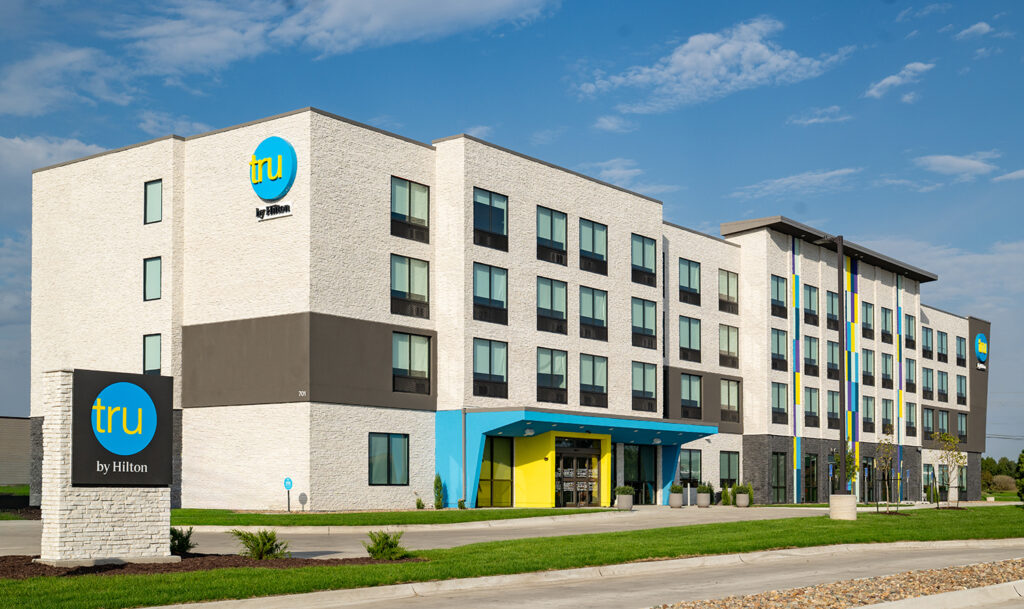INSIDER: Projects at risk due to historic tax credit change; effort to resolve controversy underway

KENT DARR Sep 16, 2015 | 6:08 pm
8 min read time
1,958 wordsArts and Culture, Business Record Insider, Real Estate and DevelopmentDevelopers involved in the renovation of historic buildings say they are losing tens of thousands of dollars a month as bankers and state officials are meeting to work out a controversy surrounding Iowa’s historic tax credit program.
At issue is a change, an unexpected change developers say, in rules for administering the program that requires an Iowa Department of Revenue audit of expenses.
Those reviews are delaying the issuance of tax credits for up to a year after a project is completed and qualifies for the allocation of credits. Once issued, the credits, which provide a reduction in tax liability and, in some cases, result in tax refunds, help developers pay bank loans for the projects and meet other expenses.
The credits can be the difference between a thin profit margin on a high-risk project and no profit at all.
In some cases, developers are paying monthly interest penalties of $30,000 to $60,000 while they wait for the credits to be issued.
The delays are prompting investors to flee the Iowa historic tax credit market, say some developers, who add that they are looking for projects in other states.
Several projects that are underway or in the planning process are jeopardized by the controversy, including the completion of the Younkers/Wilkins Building by local developer Blackbird Investments, and the Harbach Lofts renovation of two buildings at Martin Luther King Jr. Parkway and Southwest Fifth Street into apartments and retail space.
Davis Sanders and Kent Mauck, who are developing Harbach Lofts, said potential tax credit buyers on their project are offering less equity for the Iowa credits or are declining to buy the credits, all because of changes in the state program.
“Firms with experience buying tax credits in other Midwestern states tell us they cannot understand why Iowa has added so many new regulations to a program that was effectively doing what it was designed to do,” Sanders and Mauck said in an email.
Meanwhile, an official with at least one bank that has emerged as a key player in Greater Des Moines development projects said state officials are sympathetic to the problems created by the change in rules for the tax credit program and are working toward a resolution.
The message is that time will cure all ills, even when they amount to $1 million in interest payments.
State officials who administer or monitor the program did not return phone calls.
However, developers, consultants and others familiar with the controversy say that the revenue department review seems to have been prompted by a fear that the state will suffer a repeat of the film tax credits fiasco that resulted in criminal prosecutions and the ultimate demise of the program in 2010, amid allegations of fraud and mismanagement.
The Iowa Appeals Board earlier this year awarded $700,000 to movie investors who had been approved for $1.4 million in film tax credits that went unpaid.
Iowa Solicitor General and Deputy Attorney General Jeff Thompson played a key role in the film tax credits investigations, and he is leading efforts to find a resolution to the historic tax credits controversy. Thompson could not be reached for comment.
In fact, some developers who spoke to the Business Record requested anonymity because of concerns that speaking publicly would draw unneeded attention and jeopardy to their projects.
Others, however, had this reaction: “I could chew glass over this issue, so it is easy for me to get hot about it,” Mike Nelson, head of Nelson Construction & Development and an active player in the historic renovation field, said in an email.
Nelson is what a state official described during a meeting with bankers and others trying to resolve the controversy as “tweener.” He completed a project while the old rules were in place and is waiting for tax credits to be issued under the new rules, said Dan Downs, regional commercial lending manager for Lincoln Savings Bank.
Nelson said he has waited 12 months for a tax credit allocation for the Fleming Building, a historic renovation carried out by Nelson and investment partner B.J. Baker. During that time, his interest payments have amounted to nearly $1 million.
Downs said the steep charge is not unusual, with payments running $30,000 to $60,000 a month on loans that under the old rules probably would have been paid off 60 to 90 days after a project was completed and qualifying expenses submitted for tax credit allocations.
Banks cannot be expected to waive those fees, said Downs.
“At the end of the day, we have to collect the interest payments,” he said.
The controversy has been simmering since the end of May, when new rules were adopted to implement the changes to the state historic tax credit law approved by the 2014 Iowa Legislature.
That legislation initially drew mixed reviews from developers, as it eliminated a first-come, first-served process for approving projects for a program that gave priority to projects on which work was ready to begin. However, It also established a method by which the tax credit allocation would be determined during an early project review.
When the rules were adopted, the Iowa Department of Revenue replaced the Iowa Department of Cultural Affairs and its State Historical Preservation Office as the source of last review of projects before a final allocation of tax credits.
Nelson and other developers said they were caught off guard by the intense scrutiny of their projects by the revenue department. Prior to the implementation of the rules in May, developers would have their accountants review project expenses and determine whether they qualified for state historic tax credits.
In addition, most projects also had to pass muster with the U.S. Internal Revenue Service because they also qualify federal historic tax credits.
At the moment, the state program “lacks the leadership and it lacks the predictability, and you can’t have that when you are taking this kind of risk,” Nelson said.
The tax credits are part of the so-called capital stack that often serves as developer equity when developers obtain loans for their projects. The stack can be made up of a range of tax credits, including historic tax credits, and state and local government incentives. Developers say those financial backstops are essential in reducing their risk in complex projects.
A state revenue department review of the Iowa historic tax credit program between July 2009 and June 2014, found that 158 renovations had total funding of $622 million, with 19 percent of that amount coming from state historic tax credits and 14 percent from the federal credits, based on a survey of tax credit applicants. A combination of other federal and state tax credits accounted for nearly 7 percent of the total funding or capital stack.
“The good developers are partnered with very large national federal investors, and together on one project, our average expense for historic lawyers and accountants to make sure it is done right is over $500,000,” Nelson said. “When we start a project it is squared away and buttoned down. Now when you finish your project, you wait a year for Iowa SHPO (State Historic Preservation Office) and IDR (Iowa Department of Revenue) to decide if you have done it right. It is a joke.”
Steve King, who directs SHPO, could not be reached for comment.
Nelson’s projects include the Fleming Building, the Des Moines Building and the AP Lofts. The company has completed a historic renovation in Omaha and is at work on a $140 million historic renovation in St. Paul, Minn., with Exeter Group, the same company that has partnered with Nelson Construction & Development on a planned luxury apartment project at Seventh Street and Grand Avenue in Des Moines.
“The historic renovation national community is small, and Iowa is a state to stay away from until some predictability and leadership can return,” Nelson said. “Experienced developers and lenders are pushing away from the Iowa table, and they should. It is sad considering the economic development that happens in both Des Moines and small towns everywhere. “
Foutch Brothers LLC is a partner with Nelson on the Des Moines Building, a historic building that was placed in receivership and eventually obtained by the city of Des Moines after it was discovered that heat had been turned off and water pipes were about to freeze and break in what at the time was a vacant structure. Nelson and Foutch Brothers bought the building from the city and launched a renovation that includes commercial spaces and apartments, including a few that have the highest rents in the city.
Steve Foutch outlined the current dilemma and offered some solutions.
1. Rules need to be established up front and abided by, or the bankers and investors will lose faith in the program and pull out or give us bad pricing to cover their unknown risk. The state should follow IRS regulations, which are well-established and accepted.
2. We already hire an independent certified public accountant to do our federal cost certification. Give them the rules and accept their cost certifications. Their professional license is at stake.
3. We establish a portal software system on the cloud and put all our information there for the CPA and investors to see during the cost certification process. Give the state access, and they can review that information at the same time, and they can question it if needed.
4. The state should accept the CPA cost certification immediately and (allocate tax credits) so we can stabilize the project and move on to the next one.
5. If there is a problem, or it’s a red flag developer from a previous deal, the state can pay out immediately and only hold a small retainer to argue out the problem. Don’t hold the whole project captive.
6. The initial competition process needs to be cleaned up a bit. We have to know solid dates and processes if they want solid loan commitments and drawing packages. It’s very expensive to create and hold a building and project in limbo on wishful thinking.
7. The economics of throwing old buildings in the trash and then re-creating housing or retail out in a suburban cornfield, and the associated extension of public utility infrastructures, is way more expensive than the value of the tax credits. State leaders are not considering the whole life cycle and ecological cost of these projects. There shouldn’t be a cap. These projects save them money.
8. The tax credits are eventually paid back from sales taxes, job creation, eventual step-up in basis at the building sale, etc. It’s not “free” money; it is a short-term loan that is expensive to obtain, gets paid back, has other savings, and is quickly turning around urban revitalization.
Foutch Brothers currently is renovating the historic Equitable Building in downtown Des Moines and has done other renovations in Iowa and Missouri.
According to an Iowa Department of Revenue review of the program that was published in December 2014, the state awarded nearly $118 million in tax credits to 158 projects between July 2009 and June 2014. Property values increased 602 percent as a result of renovations, and sales tax revenue spiked to $8.5 million after the renovations from $1.9 million before the projects were started.
Between 2001 and 2014, Polk County projects received the majority of the tax credits, with nearly $47 million in historic tax credits awarded to 50 projects. Second-place Dubuque County received $42 million for 33 projects. Combined, the two counties accounted for 45 percent of all state historic tax credit allocations, according to the IDR report.










